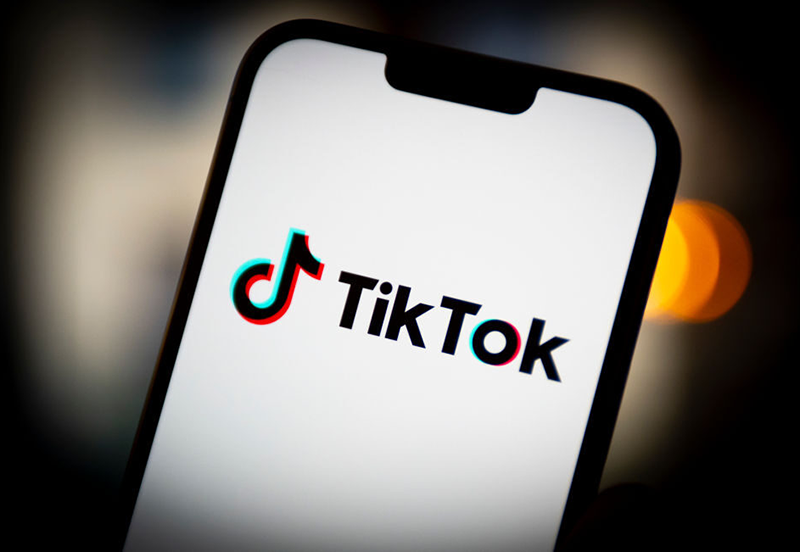- News
- No Comment
How Zimbabwean political parties campaigned on TikTok in 2023

Political parties in Zimbabwe are using TikTok to present politics as entertaining in a bid to reach the country’s young population, writes Oswelled Ureke.
Zimbabwe’s main political parties, the Zimbabwe African National Union Patriotic Front (ZANU-PF) and the Citizens’ Coalition for Change (CCC) both used the popular social media platform TikTok to campaign ahead of the August 2023 elections. Both parties exploited the playful nature of TikTok, effectively combining politics with entertainment to attract the attention of voters and win the support of voters across the country.
Social media is a viable avenue for public discourse in Zimbabwe. Freedom of expression is curtailed in the country, and public media coverage favours the ruling ZANU-PF. As a result, social media has become a way for people to speak out against the government hiding behind the anonymity provided by most platforms if needs be.
TikTok is still a new application for many social media users, having risen in popularity during the Covid-19 pandemic-induced lockdowns in 2020. Many people associate TikTok with trivial and playful content. This attracts a youthful user base to the platform, which matches the demographics of Zimbabwe’s young population. Using this playful content for the serious purpose of political campaigning could therefore help reach younger voters who were vital in deciding the outcome of the election.
Zimbabwean politicians discovered humour, singing and dancing, which are common facets of the Southern African nation’s culture and history, could be repackaged on TikTok to appeal to voters. This could help create political content that was entertaining, and entertainment that was political at the same time.
The appearance of political actors on TikTok shows that the platform can be used for ‘serious’ issues in Zimbabwe. It is unclear whether the accounts posting content in favour of ZANU-PF and CCC were administered by the political parties or their proxies. However, those TikTok accounts consistently communicated two things: they encouraged voter registration in earlier months and then directly solicited for votes closer to the 23 August polling date.
CCC-Tok
The CCC-linked TikTok accounts posted content promoting the personality and youthfulness of the then-party leader Nelson Chamisa. Some of the posts suggested that Chamisa was unassuming, appealing to the electorate and naturally connected with ordinary people. These posts contained videos of Chamisa mixing and mingling with supporters or being cheered on by bumper crowds at his rallies. The accounts promoted TikTok hashtags and content that exclusively promoted the opposition leader, giving the impression that he could single-handedly solve Zimbabwe’s problems, but also that he was the sole centre of power in his party.
The CCC-linked TikTok accounts disseminated content that accused ZANU-PF of authoring Zimbabwe’s well-documented socio-economic and political crises. The same accounts also urged youths to register to vote, in a bid to curtail the voter apathy that affected previous elections. These accounts used contemporary music in their content, particularly the Zimbabwe dancehall genre, which is popular with youths in urban areas where CCC enjoys considerable support. Zimdancehall has previously been used by Zimbabwean youths as a platform to comment about socio-economic issues affecting them.
Govt-Tok
TikTok accounts aligned with ZANU-PF promoted the party’s leader Emmerson Mnangagwa, who went on to win the election and retain the presidency. Those accounts highlighted Mnangagwa’s achievements in his first term of office since replacing President Robert Mugabe who had been toppled in a 2017 military coup. The accounts featured testimonies by beneficiaries of Mnangagwa’s development projects including social welfare programmes, the refurbishment of roads, and other infrastructure projects. This content strategy was complemented by posting well-known celebrities and social media influencers openly declaring their support for the ruling party.
ZANU-PF also used popular music to create nostalgia for its heroic achievements in the war for liberation from British colonial rule. Most of these songs extolled the virtues of war heroes and the unity and internal cohesion of ZANU-PF. The songs, accompanied by dance performances, reminded many of all-night vigils that liberation fighters organised to mobilise popular support for the war.
Some of the songs used in the TikTok content contained innuendos of violence that instilled fear in opposition members, particularly those who had witnessed ZANU-PF violence in previous political campaigns. Some of these songs were sung by ZANU-PF-affiliated vigilante groups that violently removed white farmers from their farms at the start of Zimbabwe’s land reform programme in the 2000s.
Both ZANU-PF and CCC-linked TikTok accounts also used popular, generic hashtags like #zimtiktok when posting their content. Many other users, including social media influencers, post content under the same hashtags. This means the political content could be discovered incidentally by TikTok users searching for content under the popular hashtags.
This was the first election where TikTok was widely used. It seems inevitable that it will be used again in future elections, but given the platform is relatively new political tactics are likely to evolve.
Oswelled Ureke is a senior lecturer in the Department of Communication and Media at the University of Johannesburg in South Africa. He researches about screen media, digital media, and political economy of the media. He can be contacted on ozzieureke@yahoo.com
